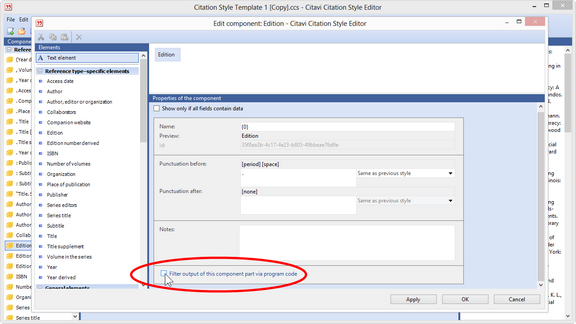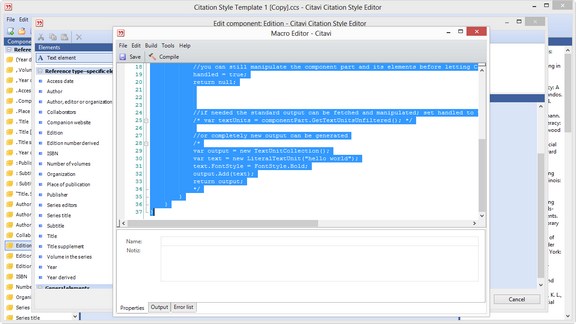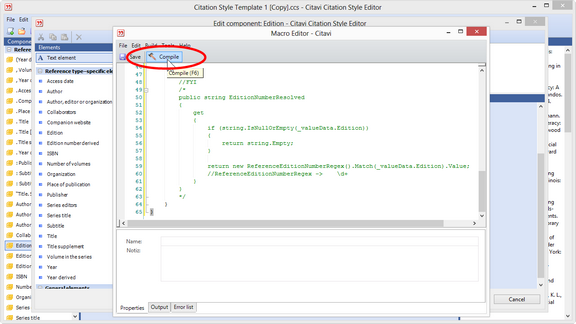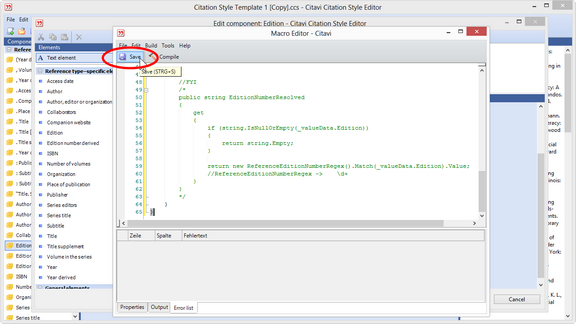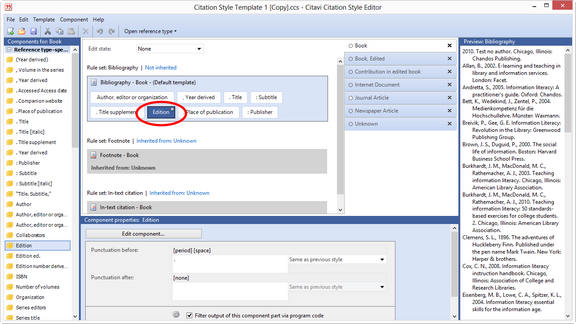Programmable Components
Some citation style requirements are so complex that they require multiple templates, as shown in the following example:
Frawley, W.: Prolegomenon to a Theory of Translation. In: id. (ed.) Translation. Literary, Linguistic, and Philosophical Perspectives. Newark, Del. 1983, 159–175.
Why is this problematic? The German style "Sozialer Fortschritt" distinguishes between language and gender. If a contribution in an edited book is cited, the editor should not be written out, if the author of the contribution and the editor of the book as a whole are identical. Instead "id." should be used for a single man, "ead." should be used for a single woman, "eid." should be used for multiple male authors or a mixed group of male or female authors or "eaed." should be used for a group of female authors. For English-language references "(ed.)" should be used for the editor, while for German-language references (Hrsg.) should be used. When all of these rules are combined, 16 templates would be necessary to make the style work properly.
Programmable components make it easier to fulfill these requirements. You can program individual components so that the bibliographic information is displayed differently when different conditions apply.
In the following example, the edition should only be listed if it is not the first edition.
To add programmed code to a compoenent, open the Properties of the component. Activate the option Filter ouput of this component part via program code. Click Add filter. |
Paste the code that you either copied from the list below or received from the Citavi Support team. Click Compile. As long as no error messages occur, continue to the next step. Otherwise, send the code to the Citavi Support team. |
Programmed components are displayed with a gear symbol. You can now edit the component as you normally would, for example to add prefixes or suffixes. |
 Example Program Code:
Example Program Code:
